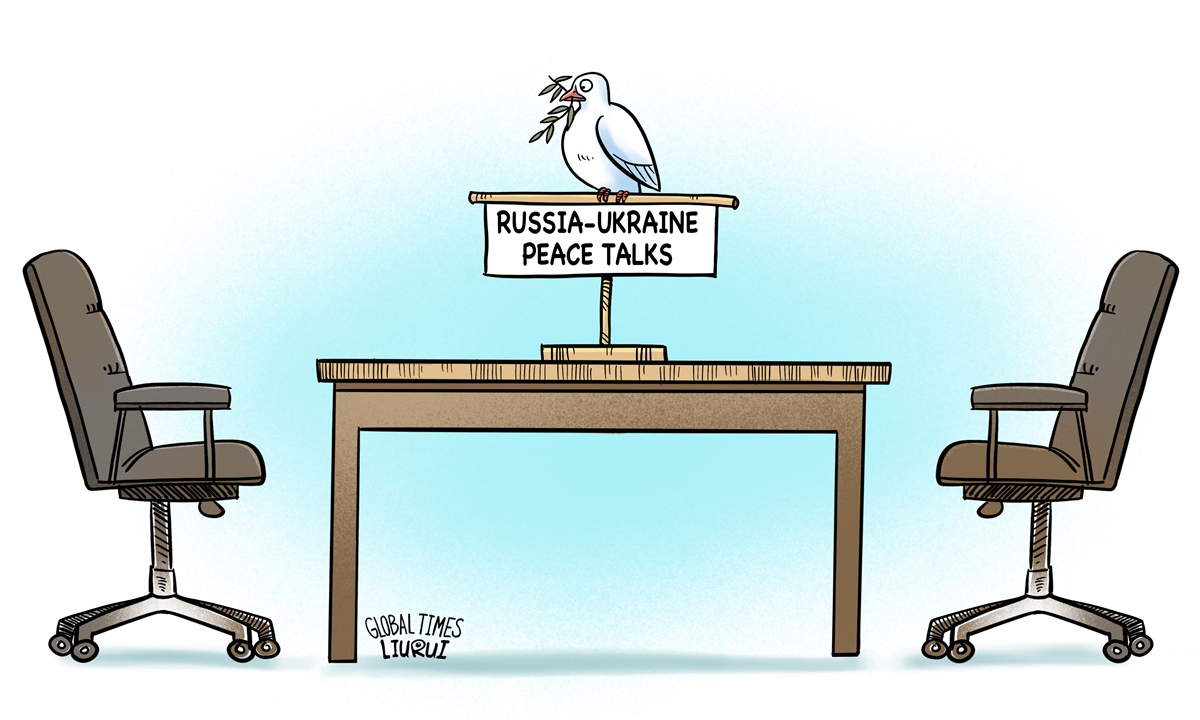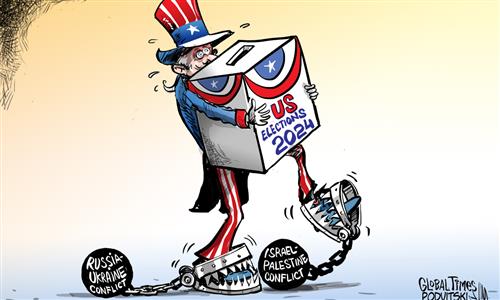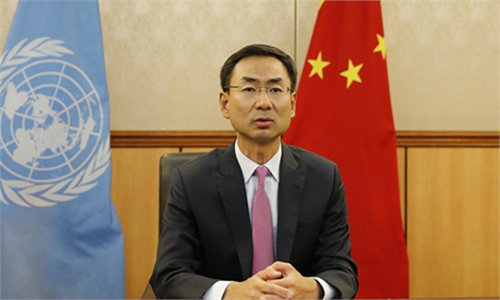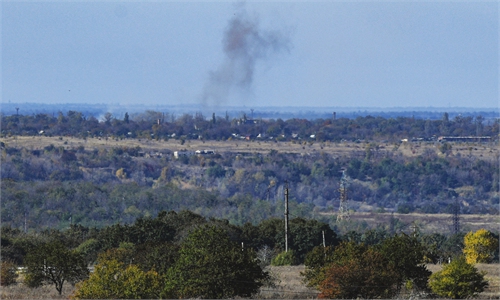
Illustration: Liu Rui/GT
The Ukrainian conflict, which began in 2014 but entered its latest and most intense phase in February 2022 after Russia launched a large-scale offensive, appears to finally show signs of winding down after nearly 22 months of warfare. The congressional gridlock over more funding for Ukraine after Speaker Mike Johnson's ultimatum that his party will only support this in exchange for comprehensive border security reform increases the chances that American aid might soon completely dry up.
This development follows Ukrainian Commander-in-Chief Valery Zaluzhny's admission to The Economist in early November that the conflict has reached a stalemate in spite of his side's counteroffensive over the summer. The New York Times reported in late September that "When both sides' gains are added up, Russia now controls nearly 200 square miles more territory in Ukraine compared with the start of the year."
That wasn't the outcome that Ukraine and its Western partners expected, and it was arguably attributable to the series of strategic miscalculations by both sides, which was described in the Washington Post in its latest two-part series on the doomed counteroffensive, published in early December. Since another counteroffensive is unlikely, due to the last one's enormous financial, physical, and strategic costs, it's possible that a window might soon open for peace talks of some sort to resume.
China's 12-point position paper on the Ukrainian conflict that was unveiled on its one-year anniversary could greatly help in bringing this about, especially if the EU heeds Chinese Foreign Minister Wang Yi's advice from late November. He told visiting French Minister for Europe and Foreign Affairs Catherine Colonna that "As long as China and Europe join hands, bloc confrontation will not occur, the world will not fall apart, and a new Cold War will not take place."
The EU's draft security guarantees that it will give Ukraine lasting security commitments, China's pragmatic 12-point position paper, and Turkiye's role as the host of such talks could combine to achieve a diplomatic breakthrough for ending the Ukrainian conflict. Moreover, the incipient China-US thaw that was on display during their leaders' meeting last month increases further optimism since Washington might no longer object to Beijing participating in this process.
The Ukrainian conflict has been a tragedy of global proportions, which is why it's imperative for all responsible stakeholders to join forces as soon as possible for bringing it to an end. Up until recently, that was a political impossibility due to the US' goal of inflicting a so-called strategic defeat on Russia, but America's ambitions have since been tempered by the counteroffensive's failure and congressional gridlock. That being the case, hopefully it won't impede others' efforts to revive peace talks in the future.
It's premature to predict exactly how everything might end, let alone when, but one scenario is that the drying up of American financial and military aid will surely convince Ukraine to resume participation in the Istanbul peace process in exchange for the EU's reported security guarantees. China's 12-point position paper could guide their negotiations and potentially lead to an armistice that freezes the line of control without either warring party officially abandoning their territorial claims.
If each side agrees to prioritize objective humanitarian interests over subjective military, political and strategic ones, then the guns might be silenced for the greater good of the civilians caught in the crossfire, thus relieving their suffering and allowing everyone the opportunity to focus on reconstruction. The root causes of this conflict could then be addressed throughout the course of more detailed peace talks at a later time, which will have a greater chance of success if carried out during an armistice.
The author is a Moscow-based American political analyst. opinion@globaltimes.com.cn



